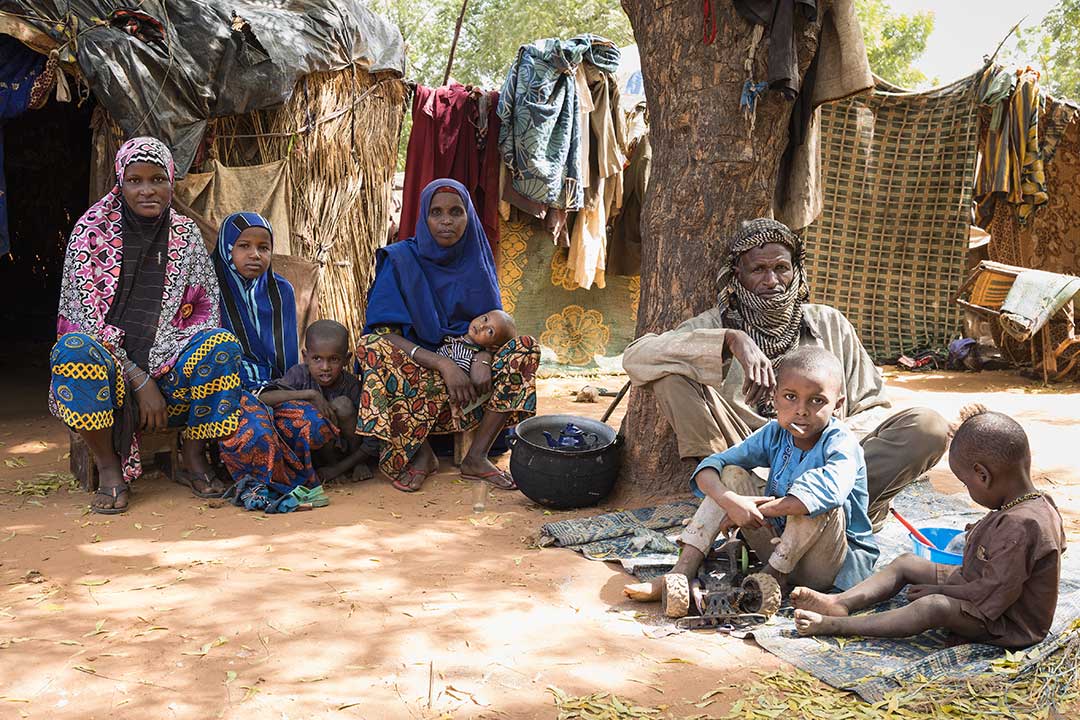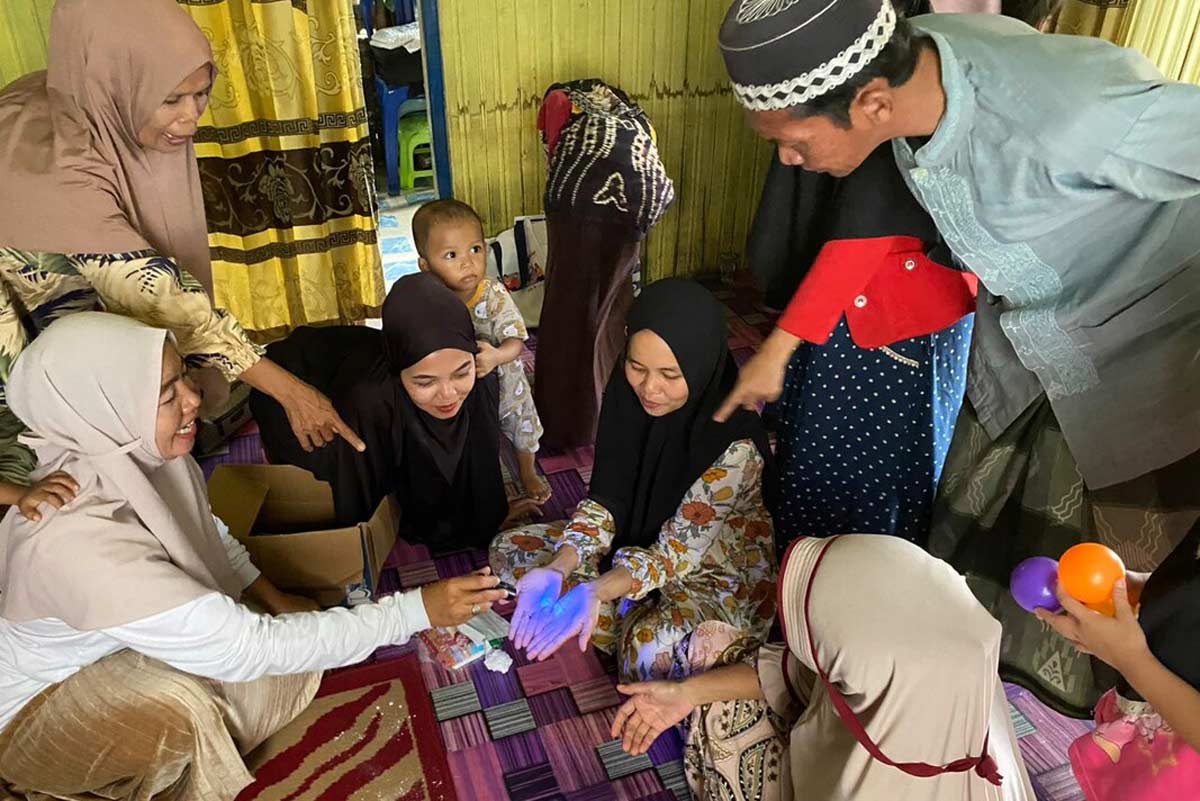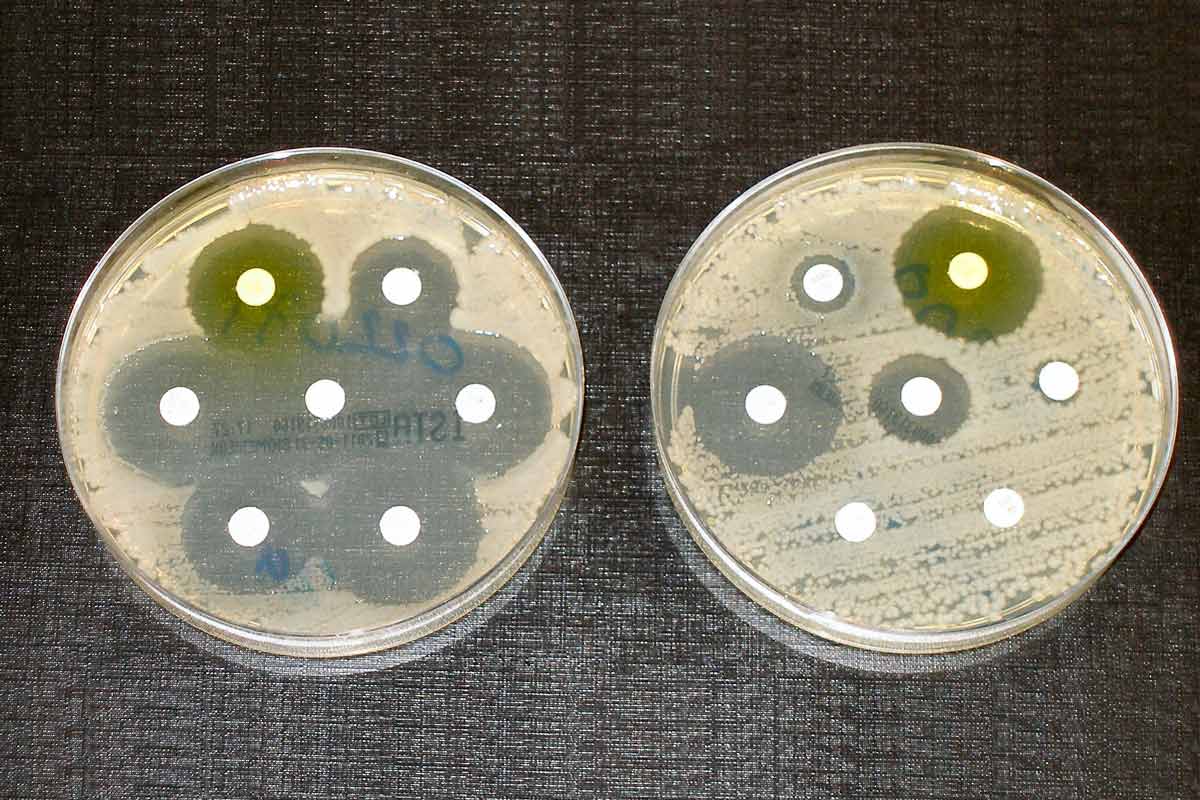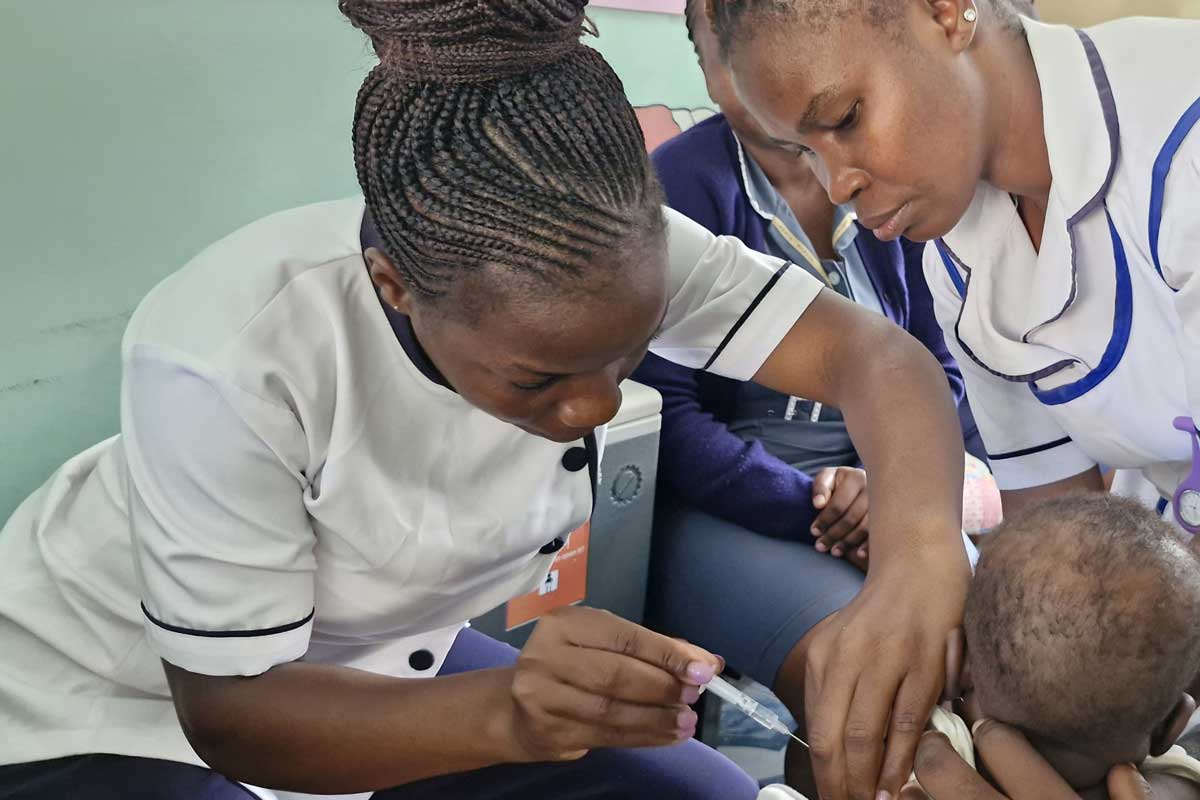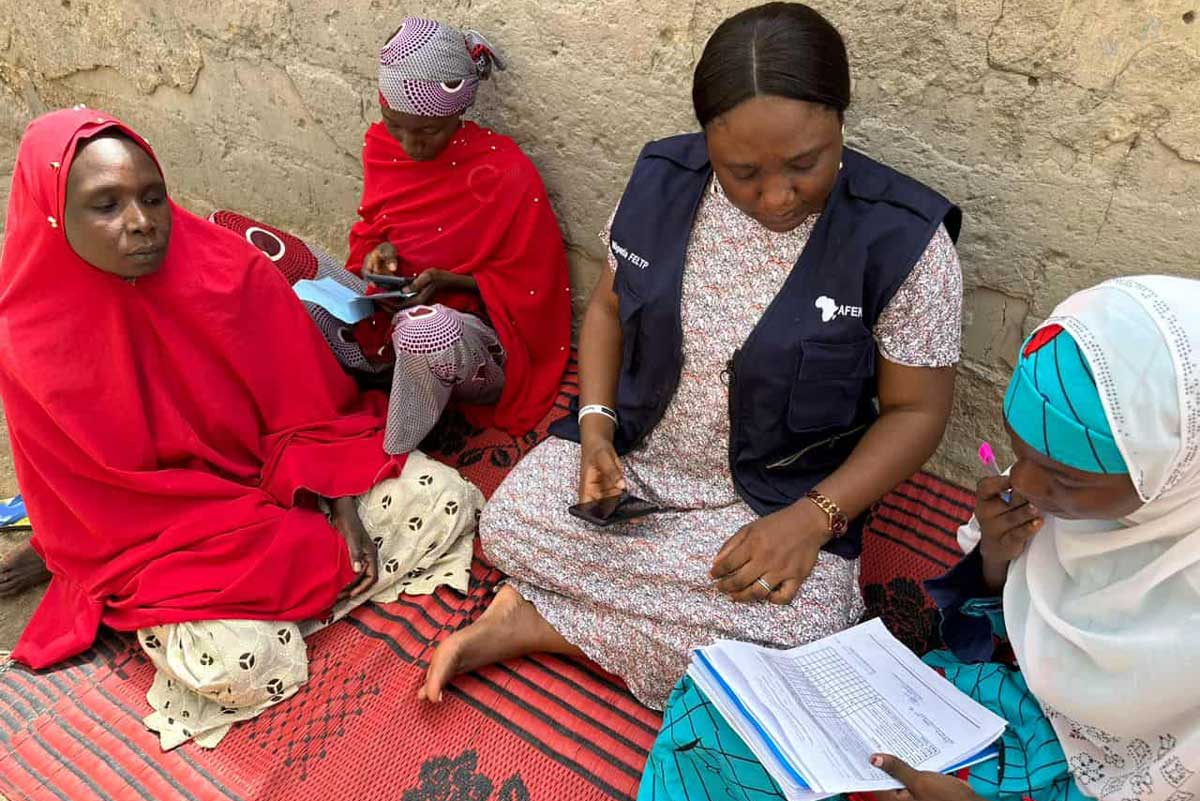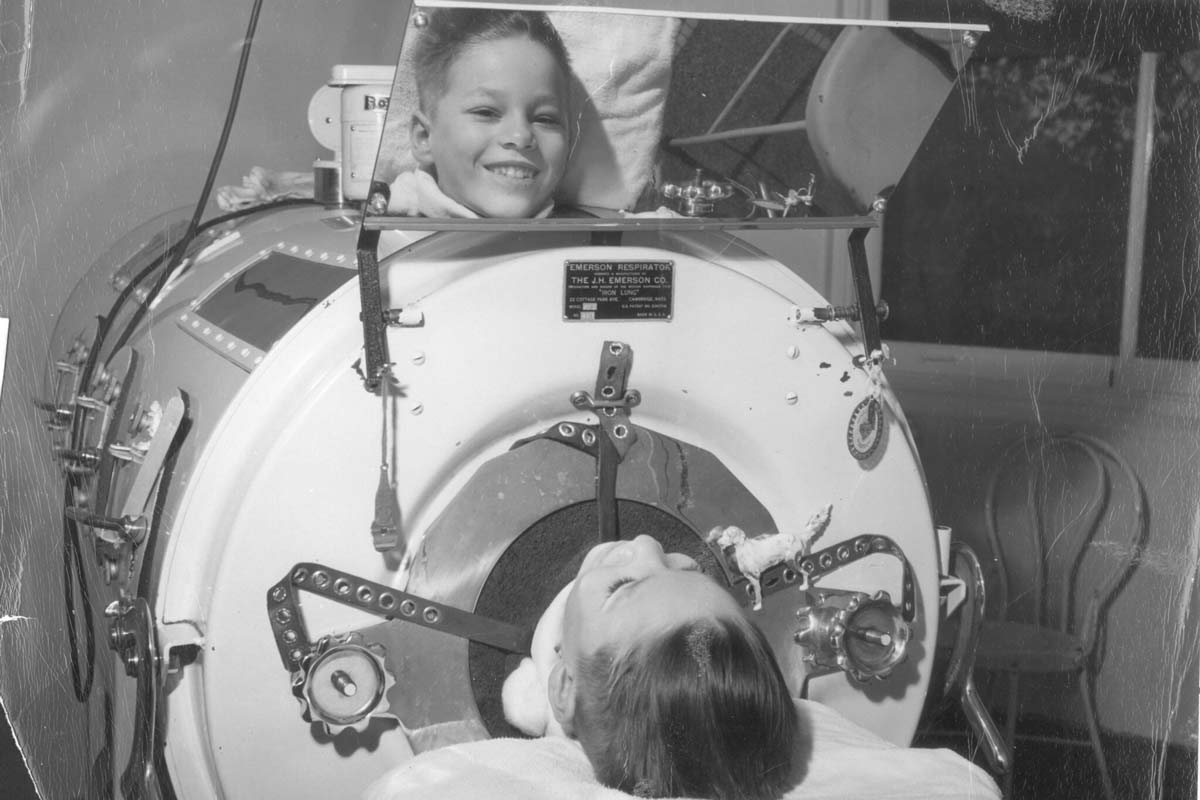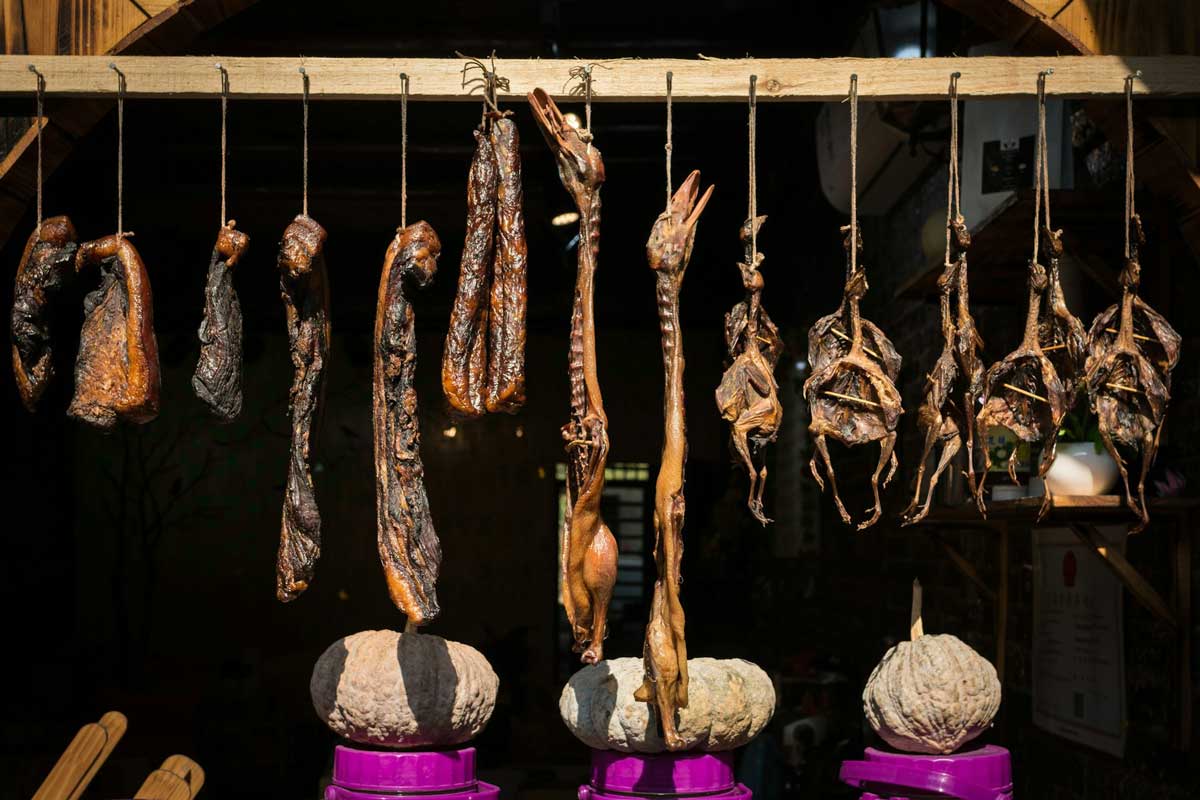Five years to save 8 million lives: everything you need to know about Gavi’s Investment Opportunity
To achieve its goals, Gavi must raise at least US$ 9 billion for its next strategic cycle.
- 20 June 2024
- 6 min read
- by Gavi Staff
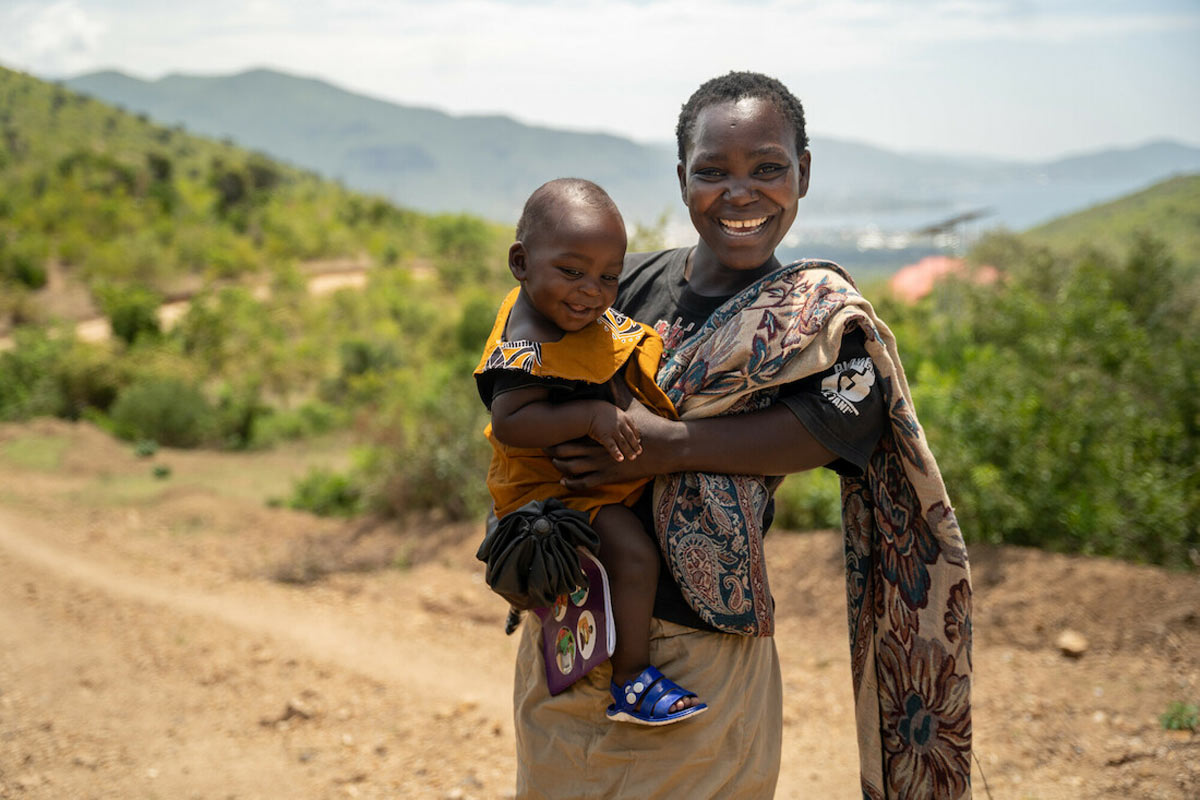
Between 2000 and 2020, Gavi, the Vaccine Alliance and its partners helped to vaccinate more than 1 billion children, saving over 17 million lives. During its next strategic period, from 2026–2030, Gavi plans to immunise at least 500 million more children, potentially preventing a further 8–9 million deaths. But to achieve this, Gavi must raise at least US$ 9 billion from donor governments, private organisations and individuals through a process called replenishment.
Investing in Gavi’s next strategic cycle gives a unique opportunity for donors to help to improve the health of people in the world’s lowest-income countries, strengthening global health security in turn. Here are the key things you need to know about Gavi’s Investment Opportunity 2026–2030.
Global challenges
The world is currently facing the dual threats of climate change and antimicrobial resistance, with low-income countries disproportionately affected by both emergencies. During the next strategic period, Gavi will ramp up its malaria vaccine programme; introduce a vaccine against dengue; and expand preventive campaigns and vaccine stockpiles against other climate-sensitive diseases such as cholera and yellow fever. It will also invest in strategies to make immunisation programmes more resilient to climate-induced shocks, including installing more than 20,000 solar-powered fridges and freezers.
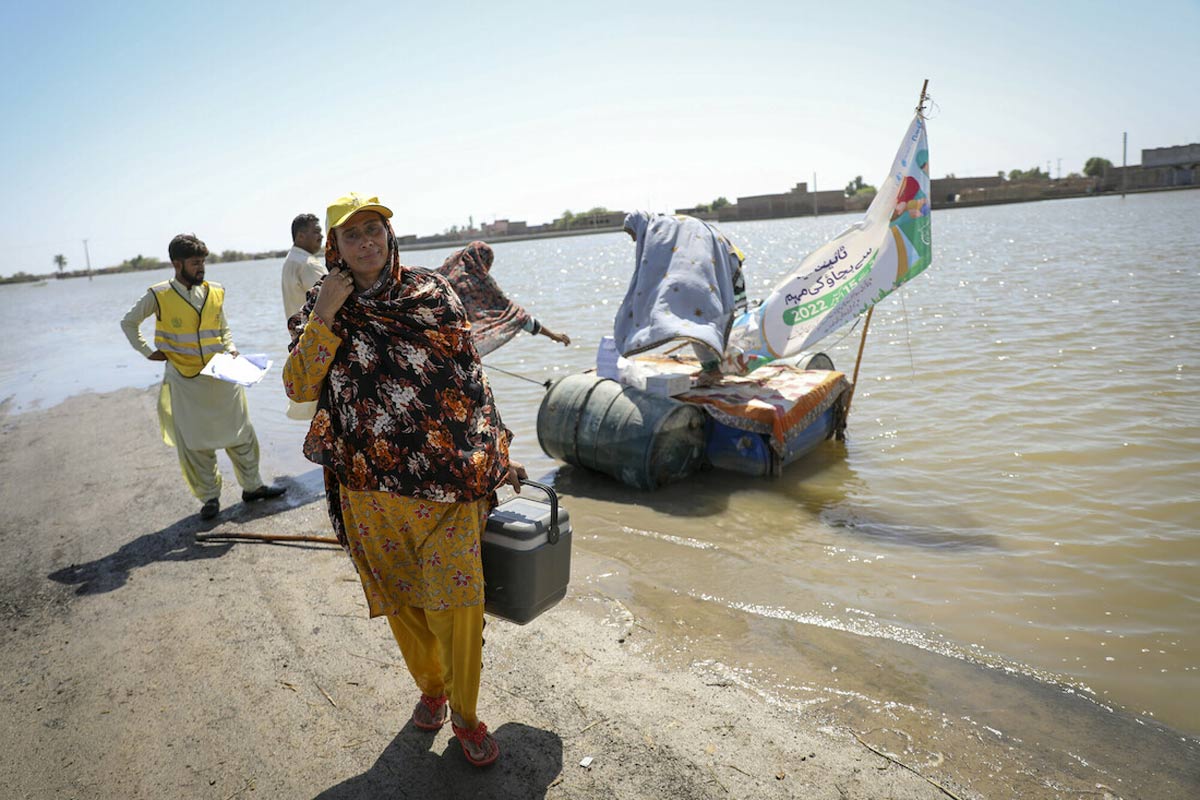
Vaccines are powerful tools in the fight against antimicrobial resistance (AMR). By preventing bacterial infections, they directly reduce the use of antibiotics to treat these diseases. Vaccines against viruses also help to curb antibiotics usage, by reducing inappropriate prescribing of these drugs to treat viral infections. During the next strategic period, it is estimated that the full scale-up of Haemophilus influenzae type B (Hib), pneumococcal, rotavirus and typhoid vaccination in Gavi-eligible countries could reduce the use of antibiotics by more than 60 million doses a year.
In responding to these and other threats, Gavi will continue to draw on and innovation from the private sector through its INFUSE (Innovation for Uptake, Scale and Equity in Immunisation) programme. It connects local entrepreneurs to Alliance partners to create an ecosystem that nourishes new ideas and technologies.
Broad protection for more children
Gavi continues to expand its portfolio of vaccines to ensure children are better protected than ever before. Whereas initially, its focus was on preventing 6 diseases, during Gavi’s next strategic period it will deliver vaccines against 24 different diseases; and the number of vaccinations supported by Gavi will increase by more than one third compared with the current 2021–2025 strategic period.
As well as boosting coverage with well-established vaccines such as pneumococcal, rotavirus, pentavalent and measles, Gavi will increase availability of HPV and malaria vaccines; and continue to expand its portfolio of new breakthrough vaccines, such as those against dengue and tuberculosis (TB).
Health system investment
Vaccinating children connects families with health systems – contacts that may be rare in rural, hard-to-reach areas. In the next strategic period, Gavi will work towards ensuring that immunisation is even more integrated into primary health care and delivered alongside a broader package of services, such as nutritional support.
Because Gavi’s portfolio increasingly includes vaccines delivered to a wide range of age groups, it is working with partners to develop a more comprehensive approach to helping countries decide which vaccines to use in their national programmes, and supporting them with the planning and delivery of these vaccines.
Gavi is also partnering with countries to and address inequities in access to health care due to traditional gender norms – e.g. by working directly with fathers to improve coverage in certain communities – and engaging with humanitarian partners who can safely negotiate access to reach under-immunised and zero-dose children in fragile environments, such as those affected by severe conflict and climate shocks.
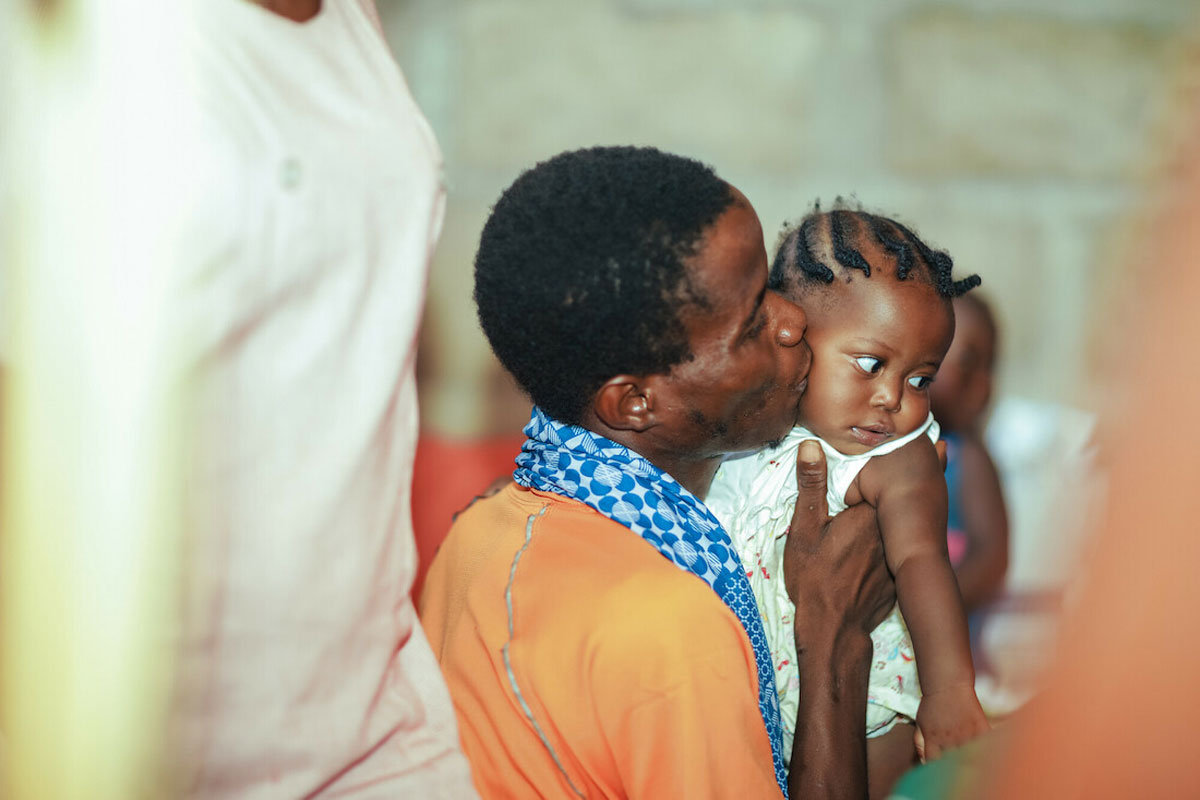
Future-proof financial model
Every country that Gavi supports makes a commitment to funding part of their vaccine programmes, with their contributions increasing over time in line with their ability to pay. For the next strategic period, Gavi will enhance its model to respond to challenges that implementing countries are facing since the pandemic, including rising debt levels and budget pressures. Even then, countries are expected to make more contributions towards the cost of their vaccines than ever before – funding more than 40% of the costs of their routine vaccines over the next five years, compared to 10% of these costs 15 years ago.
Preventing and responding to outbreaks
As the COVID-19 pandemic and recent outbreaks of cholera and measles have made clear, diseases do not respect borders. They can also have a devastating economic impact, with US$ 14 trillion wiped off the value of the world’s economies because of COVID-19. During the 2026–2030 period, Gavi will make its largest investment yet in vaccine programmes and stockpiles for outbreak-prone diseases, including Ebola, cholera, meningitis and yellow fever, plus an annual US$ 10 million in support to the Measles & Rubella Partnership. These investments will provide the capacity to respond to more than 150 outbreaks.
Gavi is working closely with global and regional health organisations to shore up routine immunisation, and help reduce outbreaks of vaccine-preventable diseases.
Thinking ahead to the next pandemic, Gavi is developing financing tools such as its Day Zero Financing Facility for Pandemics (DZF), which aims to provide up US$ 2.5 billion of surge financing capacity to support a rapid vaccine response during major public health emergencies and achieve more outcomes for the countries it supports.
Gavi has also been working with a broad coalition of partners to design a long-term financial incentive – the African Vaccine Manufacturing Accelerator (AVMA) – to support the sustainable development of vaccine manufacturing on the African continent. AVMA aims to support the procurement of at least 800 million vaccine doses made in Africa by 2035, across at least four vaccine manufacturers, using three different vaccine technology platforms.
Have you read?
Collective action
Gavi has always been about partnerships, but during the next strategic period, its model will expand to build enhanced relationships based on countries’ own needs and priorities. This will include more joint work and delivery with other global health initiatives; technical partnerships with regional partners such as the Africa Centres for Disease Control and Prevention (Africa CDC); and enhanced financial partnerships with multilateral development banks and development finance institutions. In line with this commitment to partnership and collaboration, Gavi’s actions will be designed to complement the plans of its partners, rather than duplicating them.
Proactive market shaping
Gavi was created to increase access to vaccines make them more affordable, as well as stabilising vaccine markets. It achieves this by pooling procurement on behalf of Gavi-supported countries, enabling manufacturers to invest in new markets and provide large volumes of vaccines at lower prices.
In the 2026–2030 period, Gavi will intensify its market shaping work, and seek to reduce the lowest-available prices for at least 50% of product segments across all vaccine markets, while maintaining its focus on supply security. It will also work towards shaping the market for the next generation of vaccines, including novel tuberculosis (TB) vaccines.
Investing in children’s futures
A child born in a Gavi-supported country today is 70% less likely to die from a vaccine-preventable disease before their fifth birthday than when the Vaccine Alliance was set up in 2000. Beginning in 2026, Gavi will help vaccinate more children, against more diseases, and faster than ever before. By improving access to existing vaccines and introducing new ones, Gavi hopes to reach the next billion children in half the time.
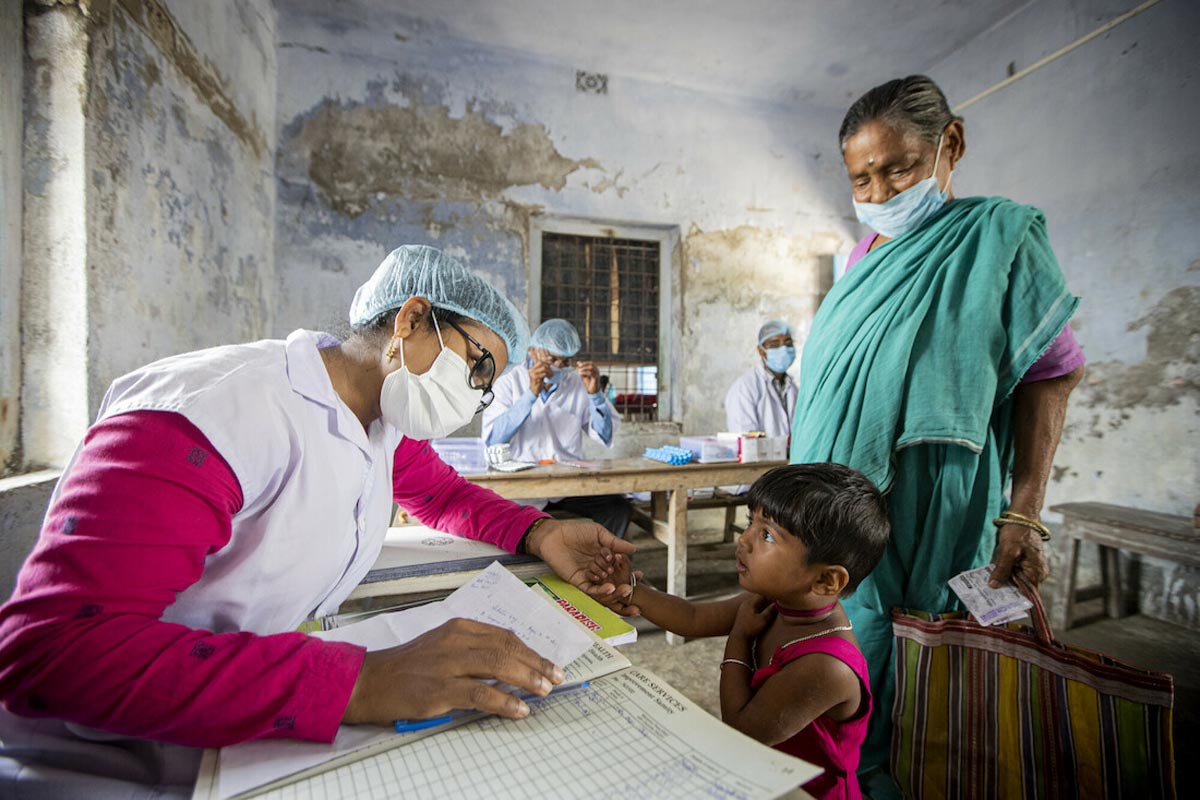
Protecting Our Future
Gavi, the Government of France and the African Union co-hosted Protecting Our Future: The Global Forum for Vaccine Sovereignty and Innovation in Paris on the morning of June 20th. Access a recording of the event-live stream here, and watch speeches from, among others:
- H.E. Emmanuel Macron, President of France
- H.E. Bassirou Diomaye Faye, President of Senegal
- H.E. Paul Kagame, President of Rwanda
- H.E. Mokgweetsi Masisi, President of Botswana
- H.E. Nana Addo Dankwa Akufo-Addo, President of Ghana
- Gavi board chair José Manuel Barroso
- Gavi CEO Dr Sania Nishtar
